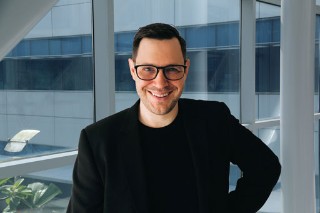Focus on secure quantum communication
Fraunhofer Singapore becomes a center for cybersecurity

Fraunhofer Singapore, a legally independent Fraunhofer affiliate, is becoming a center for cybersecurity (Fraunhofer Center for Applied and Integrated Security CAIS). Research activities focus on IT-systems protected against quantum-computer attacks. The new partner institute for this site in Singapore is the Fraunhofer Institute for Applied and Integrated Security AISEC. An important cooperation partner in Singapore is Nanyang Technological University (NTU).
Quantum technologies introduce new challenges for cybersecurity, but also present great opportunities in the fight against cybercrime. While quantum computers can break established encryption methods, quantum technology provides new opportunities when it comes to securing data, systems and infrastructures. CAIS enhances and complements the portfolio of the German partner institute Fraunhofer AISEC: On top of the existing expertise of post-quantum cryptography, which cannot even be cracked by quantum computers, Fraunhofer Singapore is now also addressing the topic of quantum key distribution, a quantum technology-based method. Other key CAIS topics include trustworthy artificial intelligence (AI), cyber physical security and secure digital identities, as well as offers for cybersecurity training and education.
Benefits for both Europe and Singapore
»In the near future, quantum computers will render current cryptographic procedures and protocols obsolete. New processes and methods in the field of cybersecurity are imperative in order to keep our data secure,« says Prof. Dr. Reimund Neugebauer, President of the Fraunhofer Gesellschaft. »Singapore presents an excellent research infrastructure that ideally complements our expertise in cybersecurity. Therefore, the cooperation is in line with our internationalization strategy for scientific value creation and the mutual benefit of the partner countries as well as with the Indo-Pacific guideline adopted by the German government, which places great value on cybersecurity cooperation with countries such as Singapore.«
»Cybersecurity and quantum technologies are highly-prioritized as research topics in Singapore, thus making it a very promising market for Fraunhofer AISEC. This partnership allows us to systematically enhance our expertise in secure quantum communications, benefiting our customers in both Germany and Europe,« says Prof. Dr. Georg Sigl, Institute Director at Fraunhofer AISEC.
»For many years, Fraunhofer has been an established partner of science, industry and politics in Singapore and is extremely well connected within the local ecosystem. With the CAIS at the Fraunhofer location in Singapore, we are committed to developing local research activities in quantum and security technologies,« says Michael Kasper, Head of the Fraunhofer Center for Applied and Integrated Security CAIS.
Fraunhofer's involvement in Singapore
Fraunhofer's Singapore location was founded in 1998 as a result of a cooperation between the Fraunhofer Institute for Computer Graphics Research IGD and the Nanyang Technological University NTU. Working closely with the Fraunhofer IGD partner institute, the site evolved into the Fraunhofer Project Center for Interactive Digital Media IDM and eventually became legally independent as Fraunhofer Singapore. With its new partner institute Fraunhofer AISEC, Fraunhofer’s Singapore location is now thematically reorienting itself. It will continue to develop existing approaches to quantum and security technologies, while also advancing new approaches within this promising field.
On an area comparable to the size of the city of Hamburg, six different universities as well as numerous research institutions, funding agencies and research ministries with a budget of $25 billion Singapore dollars take part in the current public research framework in Singapore. The National Research Foundation Singapore supports collaboration with leading international universities and research organizations such as the Massachusetts Institute of Technology, ETH Zurich, the University of Cambridge and the Technical University of Munich by means of its CREATE program. In addition to public research funding, Singapore also excels in industry investment in research and development.
- Website Fraunhofer Singapore (fraunhofer.sg)
 Fraunhofer Institute for Applied and Integrated Security
Fraunhofer Institute for Applied and Integrated Security 